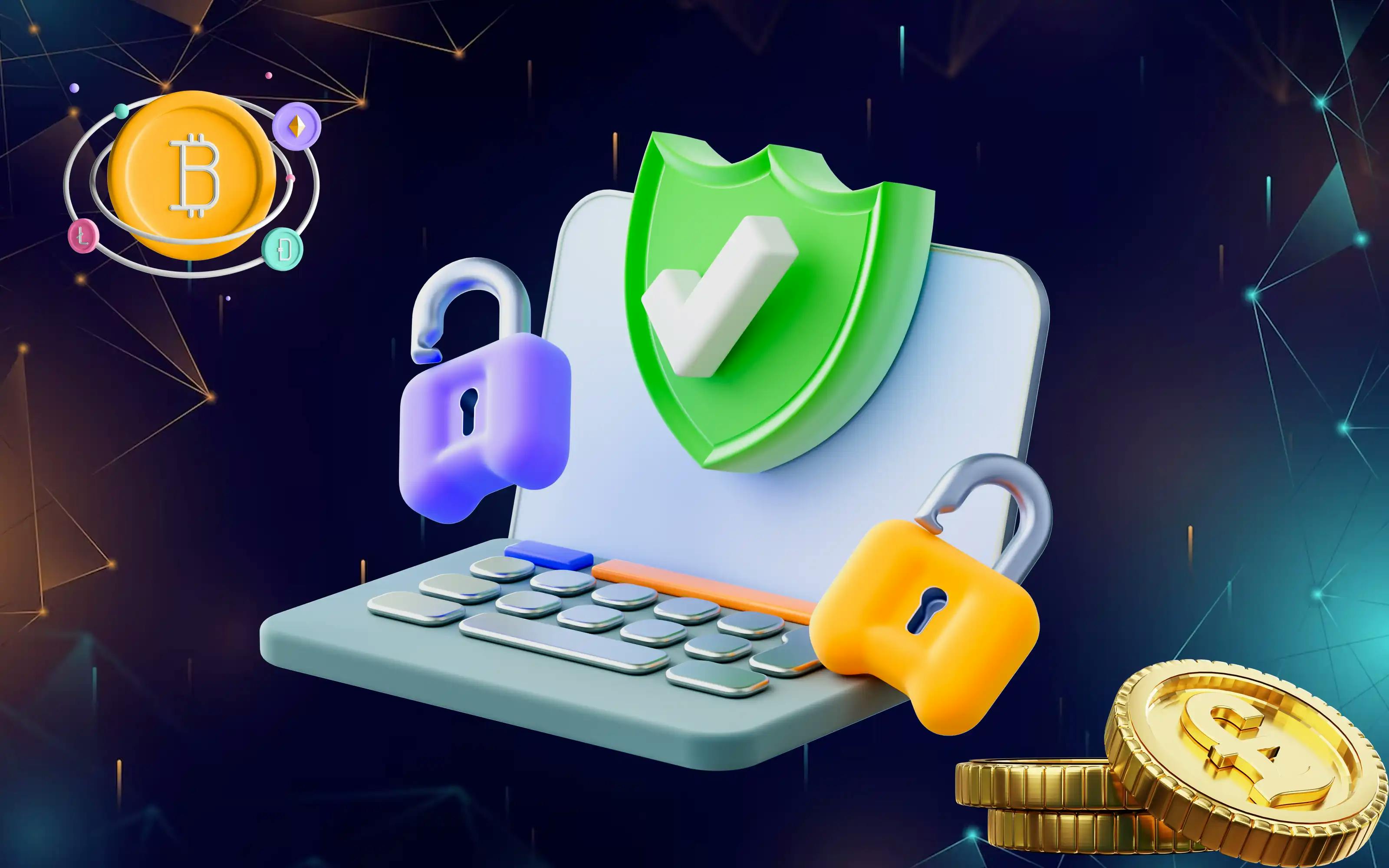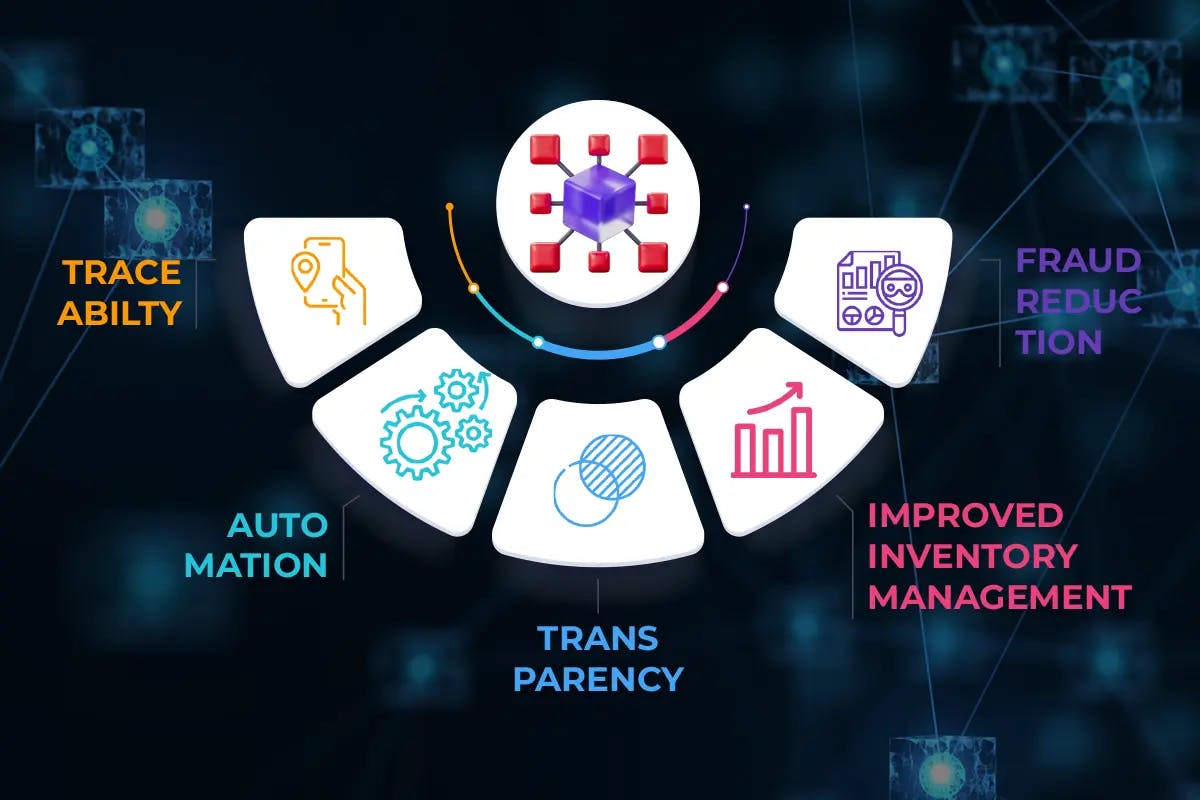
The Advantages of Blockchain in the Supply Chain Industry
The supply chain industry is important in connecting manufacturers, suppliers, distributors, and retailers to deliver products to customers. It faces challenges also and they are lack of transparency, counterfeit products, inventory issues, and data security concerns. We will dive into how blockchain technology can help the supply chain industry reduce its pain points.
What is Blockchain Technology?
Blockchain technology functions as a decentralized and distributed ledger system, capable of securely capturing and housing transactions across numerous computers or nodes within its network structure. Each transaction, or block, is linked with the previous one forming a chain of blocks. This chain is maintained and validated by the network participants which removes the need for intermediaries or central authorities. Industries like as supply chain management can greatly benefit from blockchain technology. The capabilities of blockchain extend to providing a robust resolution that ensures transparency, immutability, and security.
Understanding the Supply Chain
The term “supply chain” pertains to the intricate web of entities, materials, actions, and operations engaged in creating, distributing, and bringing products or services to final recipients. This intricate framework encompasses multiple phases, including the sourcing of basic components, production, conveyance, storage, and eventual retail. To operate effectively, a smoothly operating supply chain necessitates harmonious cooperation, synchronization, and adept administration of data and assets throughout each of these stages.
The Impact of Blockchain in Supply Chain
These technologies have capacities to change the way supply chains operate. Let’s see how using blockchain can completely transform how supply chains are managed.
- Enhanced Traceability and Transparency
Supply chain participants can create an immutable and transparent record of every transaction and movement of goods. This allows for real-time tracking and visibility into the origin, location, and status of products at each stage. This can increase transparency, stakeholders can identify inefficiencies, track product provenance, and ensure compliance with regulations and ethical standards. - Improved Supply Chain Visibility
Blockchain lets everyone see the whole supply chain. It’s like a shared record where people can watch and follow how things are moving, how much stuff is there, and if people want more or less of it. This can help make smart decisions ahead of time, keep the right amount of stuff, make things faster, and make customers happier. - Smart Contracts for Automated Processes
Smart contracts, built on blockchain, automate and execute predefined conditions without the need for intermediaries. Smart Contract automatic contracts can be used for different tasks in the supply chain such as paying bills, getting through customs, and checking if everything follows the rules. Smart contracts can avoid doing things manually. It will make work easier, cut down mistakes also make transactions faster. - Counterfeit Prevention and Product Authentication
Blockchain enables the creation of unique digital identities for products. Each product can be assigned a unique identifier or serial number recorded on the blockchain. This enables stakeholders to verify the authenticity and provenance of products at every stage. To eliminate counterfeit products blockchain helps maintain brand reputation, consumer trust, and product quality. - Efficient Inventory Management
Blockchain technology can enable to provides real-time inventory tracking and management. Blockchain can accurate and up-to-date information about stock levels, demand, and supply is provided. These details help supply chain participants optimize inventory levels, and replenishment processes, and reduce wastage. As a result, this leads to cost savings, improved customer satisfaction, and minimized stockouts or overstocking. - Streamlined Supplier and Vendor Management
Blockchain simplifies supplier and vendor management by providing a decentralized and transparent system for recording and verifying supplier information, certifications, and compliance records. This enables efficient onboarding, establishes trust, reduces the need for intermediaries, and fosters collaboration among supply chain partners. - Data Security and Privacy
Blockchain gives robust security and privacy features. The decentralized nature of blockchain ensures that data is distributed across multiple nodes which cab makes it highly resistant to hacking or unauthorized modifications. Techniques like zero-knowledge proofs which allow data sharing while maintaining privacy and protecting sensitive information and trade secrets.
Conclusion
Blockchain technology holds immense promise for revolutionizing the supply chain industry. Blockchain has been enhancing transparency, traceability, and security, blockchain empowers organizations to streamline processes, reduce costs, mitigate risks, and build trust among stakeholders. The blockchain in the supply chain is a transformative step toward creating a more efficient, secure, and interconnected global trade ecosystem. Collaborating with a trusted blockchain development company, Codiste can blockchain technology and drive significant advancements in efficiency, sustainability, and customer satisfaction in the supply chain industry. Contact us now!





